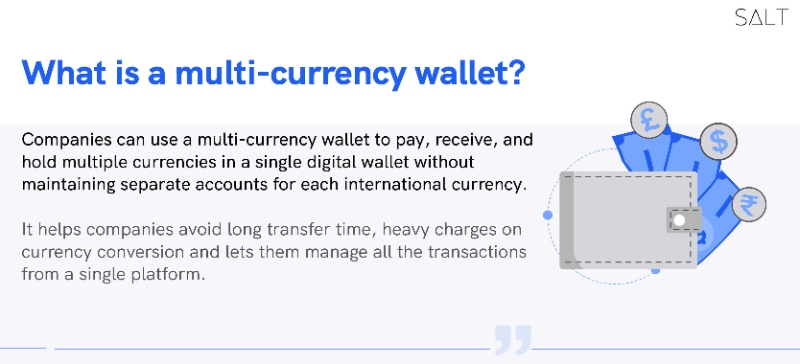
Corporate cards are a fuss-free way of dealing with business expenses borne by employees. They are handed out to employees who incur business expenses frequently, such as on work trips. A corporate credit card is essential for various business organisations such as limited liability partnerships (LLPs), Private limited companies, proprietorships, and startups.
Since employees do not have to spend out of their own pocket for business expenses, it allows the company to track and control payments. Moreover, corporate cards are a better option for companies than regular credit cards since employees are not burdened with defaults, and their credit score remains unaffected, as the company is responsible for repayments.
There are some basic eligibility criteria for companies to avail of a corporate card which differ from country to country. In the United States, for example, companies need to boast a $4 million annual revenue, need to have been in business for 12 months or more, have at least 15 card holders within the company, and should be registered as an S corporation or C corporation. Sole proprietorships are also not eligible for corporate credit cards.
However, with the number of options available today, it is important to choose the right one for a corporate card since it would become an integral part of the day-to-day operations and finances of various business organisations. Here are the top things to look for when buying a corporate credit card:
Security
As always, security would be the number one priority when looking for a suitable corporate credit card provider to protect business finances. Credit card regulations should be present to strengthen the level of security in transactions and protect personal information, as well as company policies that outline the terms of spending for employees.
Two-factor authentication and user identity verification protocols are the cornerstones of a well-rounded security system in the modern age. Many companies are also taking up 3-D Secure mode, which is a fraud prevention method wherein an extra layer of security is added. It requires a unique password, approval from a mobile application, or a timed verification code received through SMS to make a purchase or transaction successful.
Managing and controlling expenses
An expense management solution is a must since it helps monitor the expenses incurred by employees in real time. Thus, a corporate credit card should ideally come equipped with a system of managing and controlling transactions. Expense management systems linked to corporate cards that give managers access to spending information could also provide a system where they can allocate budgets to employees to keep spending under control.
Easiness of book-keeping
It is necessary to keep track of the expenses on a corporate credit card through accounting to understand gross spending overall and in every category. These insights would also help companies understand and track the spending patterns of employees and then set out adequate limits and policies. Thus, it is essential for corporate credit cards and their expense management system to integrate and work well with accounting software to provide a proper analytical view of business expenses.
Rewards/Incentives/Perks
Credit cards often offer rewards in the form of cashbacks, discounts, vouchers, etc., on SaaS platforms, and these added incentives could be beneficial to a company’s growth. Business is all about profit maximisation and cost-cutting, which is why these rewards could help save money by availing Saas subscriptions at a lower, discounted price, free subscription for a limited amount of time, or the highest plan at a discounted price. Some corporate cards also allow holders to access lounges at domestic and international airports worldwide, facilitating easier work travel.
Real-time visibility
Making purchases or transactions using credit cards has become incredibly quick and effortless, so companies need real-time visibility of the payments made on their card. Corporate credit cards should offer an instant reflection of expenses and transactions through a mobile app which is also synced with the expense management system. This would help take quicker actions and better understand the long-term policy and decision-making spending patterns.
Physical and virtual cards
We live in the digital age, where every physical component has a virtual counterpart, and the same is the case for corporate credit cards. The provider should ideally purchase both physical and virtual cards to enable easier transactions. For many companies, purchasing a physical card also comes with travel or health insurance. On the other hand, virtual cards also have the benefits of better security in online transactions and overall control over spending through a website or application.
Multi- currency wallet

For a growing company with frequent payments across borders, it is essential to have a multi-currency wallet that enables users to skip high transaction costs, remittances, and transfer fees. It would also be useful to opt for the card that offers the least waiting time since credit card payments to other countries often require waiting for long periods for the transaction to go through.
Corporate credit cards could be an effective way of understanding employees’ business expenses, especially in SMEs or early-stage startups (that are fulfilling the eligibility criteria) that are on track to establish a bigger presence and undergo growth. There are many different options available in the market today, which is why it is important to select the right one when looking for a credit card provider and look at the unique services they are offering.
Salt for international business banking
Salt is a neo-banking platform that offers a seamless B2B banking experience. It provides business banking services like inward remittances for efficient use and many others that help facilitate business expenses. If you are a business looking to manage your international payments and compliances, Salt has got you covered!


